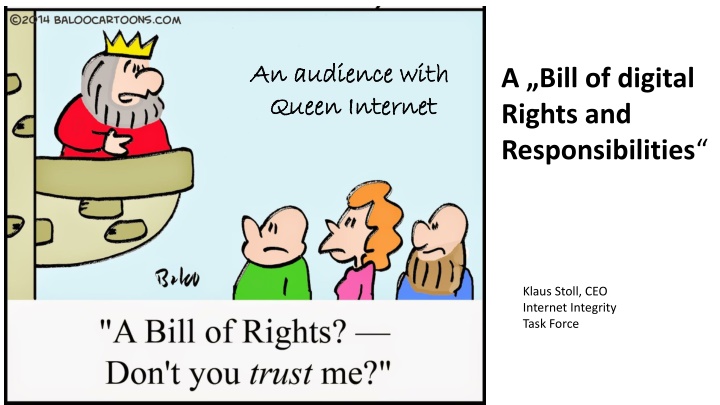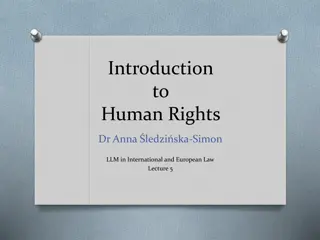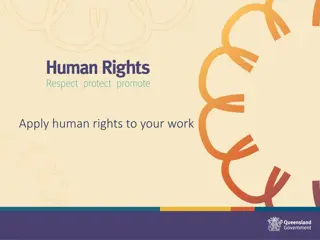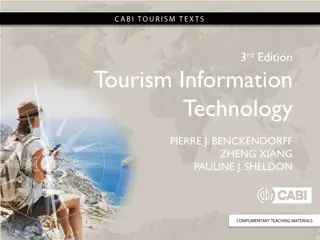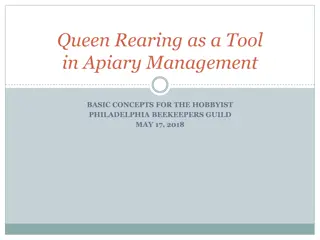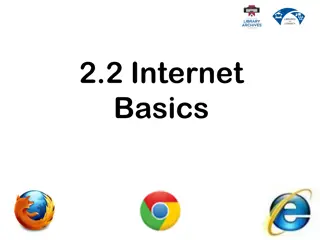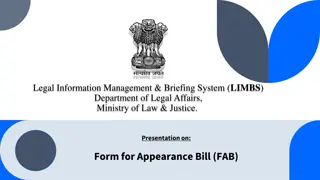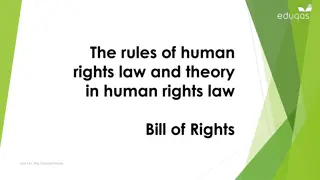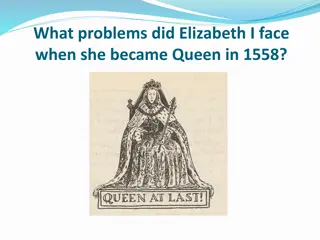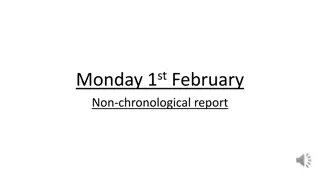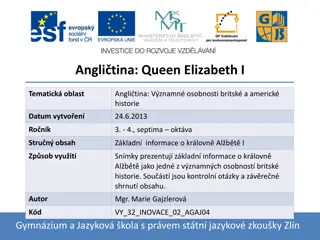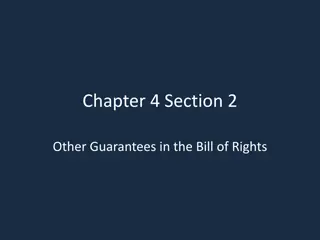Audience with Queen Internet: Bill of Digital Rights and Responsibilities
"Join CEO Klaus Stoll in this insightful audience with Queen Internet to explore the Bill of Digital Rights and Responsibilities. Learn from the Internet Integrity Task Force about protecting online integrity and upholding user rights in the digital realm."
Download Presentation

Please find below an Image/Link to download the presentation.
The content on the website is provided AS IS for your information and personal use only. It may not be sold, licensed, or shared on other websites without obtaining consent from the author.If you encounter any issues during the download, it is possible that the publisher has removed the file from their server.
You are allowed to download the files provided on this website for personal or commercial use, subject to the condition that they are used lawfully. All files are the property of their respective owners.
The content on the website is provided AS IS for your information and personal use only. It may not be sold, licensed, or shared on other websites without obtaining consent from the author.
E N D
Presentation Transcript
An An audience audience with Queen Internet Queen Internet with A Bill of digital Rights and Responsibilities Klaus Stoll, CEO Internet Integrity Task Force
Duality of our existence today We live our life's in the literal world and in virtual cyberspace. We are dual citizens of our country and cyberspace.
We are torn between the increasing impact of digital technologies and our lack of control over them.
Cyberspace is lacking an effective global system of governance. Sovereignty ends at the border. Digital governance is dominated by special interests, not the common good.
Lacking effective national and global digital governance, we don t know how to exercise our rights and responsibilities in Cyberspace.
The Missing link: A digital Bill of Rights! but we can say with certainty that we need a digital Bill of Rights to protect those subject to digital technologies against governmental and private sector,arbitrariness and despotism. We cannot answer many questions regarding the governance of cyberspace,
The role of a Bill of Rights is to remind those with power to pay attention to the fundamental rights of those that are subject to that power.
The key question: What core values inform a digital Bill of Rights?
The UDHR represents the fundamental human values that are common to us all. Trust exists where the fundamental human rights are respected. The UDHR represents the Constitution of our living together. Without respect for the fundamental human rights there is no true economic development and sustainability.
What happens when we extent and apply our fundamental human rights in Cyberspace?
Example 1: Restoring Trust Restoring trust cannot be solved through engineering but requires values. Trust is the foundation of economic and social stability and development in cyberspace. A Bill shifts the viewpoint from a limited and self-interest driven perspective to a common human rights based. In so doing it restores trust.
Digital users are able to exercise our rights and responsibilities in Cyberspace. Governments will be able to accept that they have to share sovereignty in cyberspace. Private sector will be able to accept that innovation comes with responsibilities. Responsibilities become the source of economic prosperity in a new digital economy of trust Example 2: Defining Roles
Example 3: AI Machines don t become the better people . The real issue is how to build in algorithmic routines that observe the codified rights and responsibilities of a digital Bill of Rights.
Example 4: Creating a foundation to weigh options Freedom of expression gains a context in which it can be exercised with responsibly. Fake news and manipulation are checked.
The Bills can produce an initial period of healing and restoration of trust, resulting in growth and wealth without exploitation and suppression. People will come to a point where they feel that We hold these truths to be self-evident regarding the rights and responsibilities of their digital citizenship. Then the time will have come to establishment an Internet Governance that reflects and protects peoples human rights. The Bills enables a period of healing and restoration of trust. To transform the values of the Bill of Rights into experienced reality, requires ongoing awareness To reach this stage the key will be stakeholder engagement and dialogue, to develop a digital Bill of Rights together with ongoing awareness and capacity building on all levels and all sectors. and capacity building, stakeholder engagement, integrity-based business models and legitimate digital governmental structures.
For further information visit: iitf.online Contact: info@iitf.online
